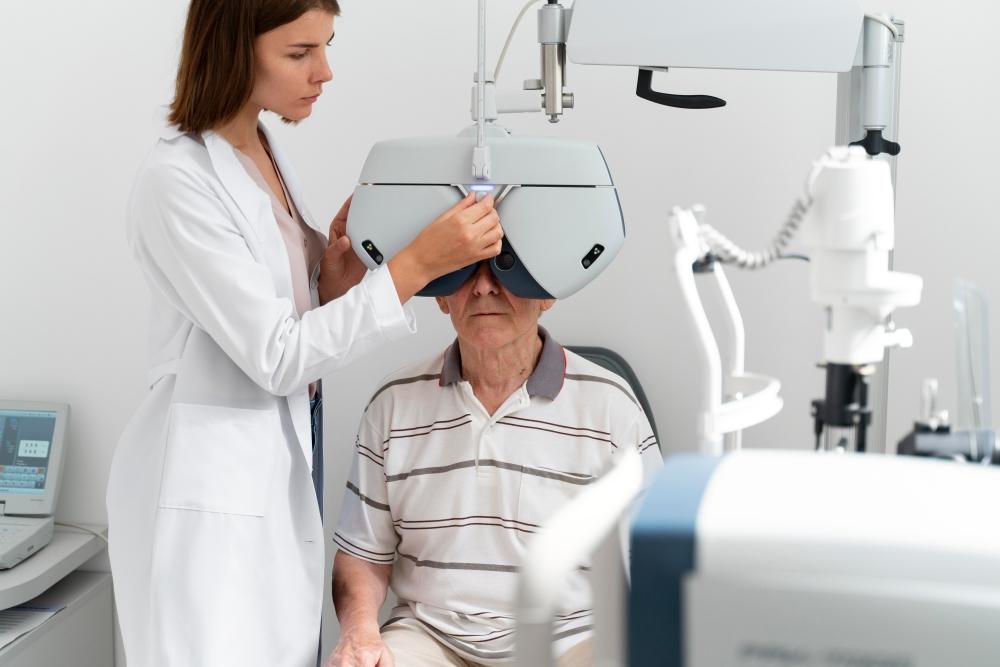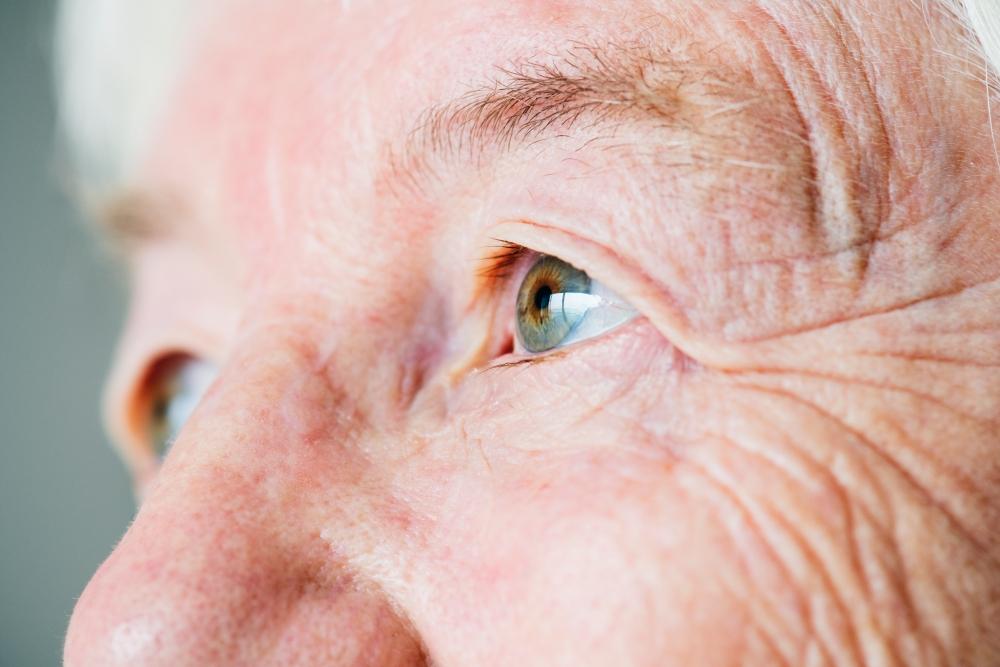Cataracts, those cloudy formations that develop in the eye’s natural lens, are a leading cause of vision impairment globally, including Singapore. They typically manifest as a gradual blurring of vision, often described as looking through a foggy window.
While age is the most common contributing factor, a pertinent question lingers: is cataract hereditary? In this article, we will explore what causes cataracts, the role genetics plays in cataract development, and other contributing risk factors, while shedding light on preventative measures to safeguard your vision.
Genetic Factors
The answer to “Is eye cataract hereditary?” may vary. While cataracts can be hereditary, they aren’t solely determined by genetics. Let’s delve deeper into the role heredity plays in cataract development.
1. Hereditary Risks
There is indeed a genetic predisposition to cataracts. Specific genetic mutations can disrupt the normal development and function of the eye’s lens, increasing the susceptibility to cataract formation. Research indicates that individuals with a family history of cataracts, especially those affecting younger relatives, face a higher risk of developing the condition themselves. This familial link suggests that genetic factors can contribute to the onset of cataracts.
2. Genetic Predispositions
Several genetic markers have been associated with an increased risk of cataracts. Mutations in genes responsible for producing lens proteins, such as crystallins, can lead to protein clumping and clouding of the lens. Certain inherited metabolic disorders or systemic diseases with genetic components can also elevate the risk of cataracts.
Other Risk Factors
While genetics can play a role, it’s important to remember that cataracts are not exclusively hereditary. Several other risk factors can contribute to their development.
1. Age and Lifestyle
Age remains the most prevalent risk factor for cataracts. As we grow older, the proteins in our eye lenses naturally break down and clump together, leading to clouding and vision impairment. However, lifestyle choices can also accelerate this process or increase our susceptibility to cataracts at a younger age.
- Smoking: Smoking may increase the risk of cataract development due to the oxidative stress it places on the eyes.
- Excessive Alcohol Consumption: Heavy alcohol use can also contribute to cataract formation by impairing the body’s ability to absorb essential nutrients for eye health.
- Poor Diet: A diet lacking in antioxidants and essential vitamins can leave your eyes vulnerable to damage and increase the likelihood of developing cataracts.
- Sun Exposure: Unprotected exposure to ultraviolet (UV) radiation from the sun can accelerate cataract development. It’s advisable to wear sunglasses that block both UVA and UVB rays when outdoors.
2. Medical Conditions
Certain medical conditions can also increase the risk of cataracts.
- Diabetes: People with diabetes, especially if poorly controlled, are at a higher risk of developing cataracts at a younger age. High blood sugar levels can damage the lens fibres, leading to clouding.
- Hypertension: High blood pressure can also contribute to cataract formation by affecting the blood vessels that nourish the eyes.
- Other Health Issues: Eye injuries, inflammation, and certain medications like steroids can also increase the risk of cataracts.
Preventive Measures
While hereditary factors can heighten the risk of cataracts, understanding those risks allows individuals to take proactive steps to safeguard their eye health.
- For Those with a Family History: If you have a family history of cataracts, it’s advisable to start regular eye exams with an ophthalmologist in Singapore at a younger age. Early detection and monitoring can help identify any signs of cataract development and initiate timely treatment. Adopting a healthy lifestyle, including maintaining a balanced diet, protecting your eyes from UV exposure, and managing underlying health conditions, may help reduce your risk.
- General Prevention Tips: Even without a family history, proactive eye care is recommended for everyone. A diet rich in antioxidants and vitamins, especially those found in colourful fruits and vegetables, can play a role in protecting the eye’s lens from oxidative damage, a potential contributor to cataract formation. Protecting your eyes from harmful UV radiation through sunglasses and maintaining good overall health can further mitigate your risk.

The Importance of Proactive Eye Care
The link between cataracts and hereditary highlights the importance of proactive eye care, especially for individuals with a family history of the condition. Regular visits to an eye clinic in Singapore, particularly one specialising in cataracts like Eyewise Vision, can allow for early detection and timely intervention. Our team of ophthalmologists can help conduct eye screenings and assess your individual risk factors.
While cataracts may not always be entirely preventable, understanding your risk factors empowers you to make informed decisions about your eye health. Whether you have a family history of cataracts or are simply seeking to maintain optimal vision, embracing preventative measures and regular eye care are recommended to protect your eyesight.
If you have concerns about cataracts or your overall eye health, feel free to schedule an appointment. We’re here to support you on your journey towards a lifetime of clear vision.

